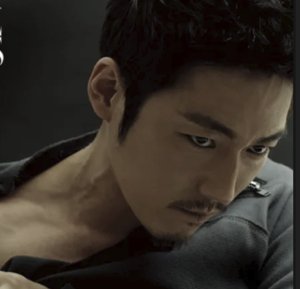The Effects of Juvenile Delinquency And the Role Society Plays
From its opener, this drama came out swinging, and it didn't stop to the end. I had high expectations, and I am glad it didn't disappoint. I thoroughly enjoyed this drama, everything from the overwhelming storytelling and cases to the cinematography, directing, and especially the acting of the leads and the supporting cast. Both Kim Hye Soo and Kim Mu Yeol were outstanding, and complimentary of each other. Her strong stance on punishment and his clear belief in nurturing and reform completed each other in many ways. It was almost like when she ran cold, he warmed her up, and when he threatened to go cold, she found a way to warm him up. Their personal traumas helped me understand their stance and shaped the story.
What I like most about this drama is how daringly it tackled the complex and staggering psychological and social circumstances surrounding juvenile delinquency, the juvenile court system, and the effects it has on the victims, the juvenile delinquents themselves, their families, and even society as a whole. The thought that the stories it tells maybe someone's real life reality is heartbreakingly crushing. Right after I watching Juvenile Justice I read a review that described the script as "having a tendency to devolve into preachy monologues, which did a disservice to the drama". I was utterly surprised, because I thought those preachy parts were precisely what made the drama so impactful, given the heavy subject matter.
As much as I enjoyed the drama, some episodes were hard to watch, almost cruelly so, especially how desensitized society has become to the pain and injustice of others. The drama was thought provoking. It made me question myself and how I would react to the many uncomfortable situations. I have a newfound respect and admiration for juvenile delinquent judges, counselors, social workers, and everybody who works with and around children. I don't think I could do it. The whole time I watched the drama, I kept thinking that when parents cover up for their children's wrongdoings, are they doing it for their children or for their own sake? I also couldn't stop thinking how children as young as nine could be so disconnected from their community and society that they could commit such atrocities; where and how does it go wrong, be it with the children, the parents or society. A lot to ponder.
I am not a parent, but I know it isn't easy. As an aunt actively involved in raising my nieces and nephews, I know how important it is for children to know that they are loved unconditionally, particularly when they make mistakes because everybody make mistakes. But they also need to those mistakes have consequences, especially when they cause harm to others. Parents sternly disciplining their children is the tough love they need. It's far more helpful in the long run than covering up those mistakes, no matter how bad. And this is especially important in a country like South Korea, where society plays a big role in shaping its citizens, that it becomes part of the solution, not a contributing factor. I wonder if I sound preachy, hmmmm!
Juvenile delinquency isn't just a legal issue that can be taken care of by law, but a major social problem that requires urgent attention. I pray this drama in its ten episodes succeeds in casting the needed attention, and more importantly, to relay the message that punishment shouldn't only be about imprisonment, but also development and reform. As Shim Eun Seok says in the drama, it takes a village to raise a child. It's why we still need the "village" strengthening support mentality for our children today. Is Juvenile Justice a perfect drama; perhaps not, but it does a darn good job expressing how the inadequacy of the criminal and judicial justice system, the breakdown of the family unit, particularly parental guidance, and resulting trauma as well as societal neglect exacerbate serious youth crimes. Yes, reforming juveniles is paramount, but their victims matter too and shouldn't be marginalized in the process.
What I like most about this drama is how daringly it tackled the complex and staggering psychological and social circumstances surrounding juvenile delinquency, the juvenile court system, and the effects it has on the victims, the juvenile delinquents themselves, their families, and even society as a whole. The thought that the stories it tells maybe someone's real life reality is heartbreakingly crushing. Right after I watching Juvenile Justice I read a review that described the script as "having a tendency to devolve into preachy monologues, which did a disservice to the drama". I was utterly surprised, because I thought those preachy parts were precisely what made the drama so impactful, given the heavy subject matter.
As much as I enjoyed the drama, some episodes were hard to watch, almost cruelly so, especially how desensitized society has become to the pain and injustice of others. The drama was thought provoking. It made me question myself and how I would react to the many uncomfortable situations. I have a newfound respect and admiration for juvenile delinquent judges, counselors, social workers, and everybody who works with and around children. I don't think I could do it. The whole time I watched the drama, I kept thinking that when parents cover up for their children's wrongdoings, are they doing it for their children or for their own sake? I also couldn't stop thinking how children as young as nine could be so disconnected from their community and society that they could commit such atrocities; where and how does it go wrong, be it with the children, the parents or society. A lot to ponder.
I am not a parent, but I know it isn't easy. As an aunt actively involved in raising my nieces and nephews, I know how important it is for children to know that they are loved unconditionally, particularly when they make mistakes because everybody make mistakes. But they also need to those mistakes have consequences, especially when they cause harm to others. Parents sternly disciplining their children is the tough love they need. It's far more helpful in the long run than covering up those mistakes, no matter how bad. And this is especially important in a country like South Korea, where society plays a big role in shaping its citizens, that it becomes part of the solution, not a contributing factor. I wonder if I sound preachy, hmmmm!
Juvenile delinquency isn't just a legal issue that can be taken care of by law, but a major social problem that requires urgent attention. I pray this drama in its ten episodes succeeds in casting the needed attention, and more importantly, to relay the message that punishment shouldn't only be about imprisonment, but also development and reform. As Shim Eun Seok says in the drama, it takes a village to raise a child. It's why we still need the "village" strengthening support mentality for our children today. Is Juvenile Justice a perfect drama; perhaps not, but it does a darn good job expressing how the inadequacy of the criminal and judicial justice system, the breakdown of the family unit, particularly parental guidance, and resulting trauma as well as societal neglect exacerbate serious youth crimes. Yes, reforming juveniles is paramount, but their victims matter too and shouldn't be marginalized in the process.
Was this review helpful to you?


 2
2






















